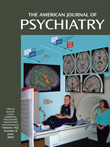This book is a concise yet thorough guide to the religious belief systems held by human beings and how these beliefs are likely to affect psychiatric treatment. The authors use the concept of worldview (Freud’s Weltanschauung), one’s basic philosophy of existence, instead of religion. This is a wise approach for two reasons. First, it avoids the possibly pejorative connotations of the term “religion.” Second, worldview is a broader concept and includes people who profess no religious belief at all. Everyone has a worldview.
Handbook of Spirituality and Worldview in Clinical Practice is divided into three parts. Part 1 is an introductory chapter by Dr. Armand Nicholi that lays the groundwork for the rest of the volume. Dr. Nicholi gives a clear and well-organized discussion of the concept of worldview, drawing on the writings of Freud. Worldviews can be divided into two major categories. The first includes the belief that nothing exists except the physical realm of matter-energy (“materialism”), that life emerged from nonlife through chemical processes alone, and that the universe came into existence on its own out of nothing by pure chance. The second category includes beliefs that there is some transcendent or spiritual realm. The primary examples are theistic faiths (Islam, Christianity, Judaism, and Hinduism). Also in this category is monism, the belief (characteristic of Buddhism) that the physical realm is an illusion only and that the transcendent is all that really exists. Dr. Nicholi correctly points out that, since the negative is impossible to prove, atheism is inherently illogical. Indeed, the atheist relies on “faith” as much as does the theist. He concludes, “No clinician, regardless of clinical skills, can know the patient without exploring that patient’s Weltanschauung” (p. 11).
Part 2 of Handbook of Spirituality and Worldview in Clinical Practice has a clinical focus. The authors point out, “Religious and spiritual issues are inextricably woven into patients’ lives and may influence their disorders as well” (p. 15). Furthermore, religious and spiritual issues may determine patients’ attitudes toward and acceptance of medical treatment. Topics covered include doing a worldview (or spiritual) assessment and constructing a “biopsychosociospiritual formulation.” There is a brief summary of some recent research documenting correlations between health and religious belief. Use of DSM-IV-TR with regard to spiritual problems is discussed.
Part 3 of the book is devoted to a specific examination of most of the worldviews that the practicing clinician is likely to encounter: Protestant, Roman Catholic, Jewish, Muslim, Hindu, Buddhist, atheist, and agnostic. Individual chapters are written by experts in the respective worldviews. Each chapter is insightful and well written, and each contains concise and accurate information on the theology of the group being discussed. There is particular attention to how members of the group could be expected to consider mental illnesses and how they may be predisposed to respond to psychiatric treatment.
True to its title, Handbook of Spirituality and Worldview in Clinical Practice succeeds in being a clinically useful guide. Although multiauthored, the text is uniformly clear, concise, and well written throughout. It is pragmatic and easy to read. It should be on the bookshelf of every clinician.
My only criticism pertains to what the authors chose not to include. It would have been helpful to have included the so-called New Age worldview as well as the worldviews of groups that practice religiously motivated refusal of medical treatment: Christian Science, Jehovah’s Witnesses (who refuse blood transfusions), and certain fundamentalist Christian groups. The psychiatrist may be called on by colleagues to consult on such cases. Perhaps these topics will be addressed in a future edition.

